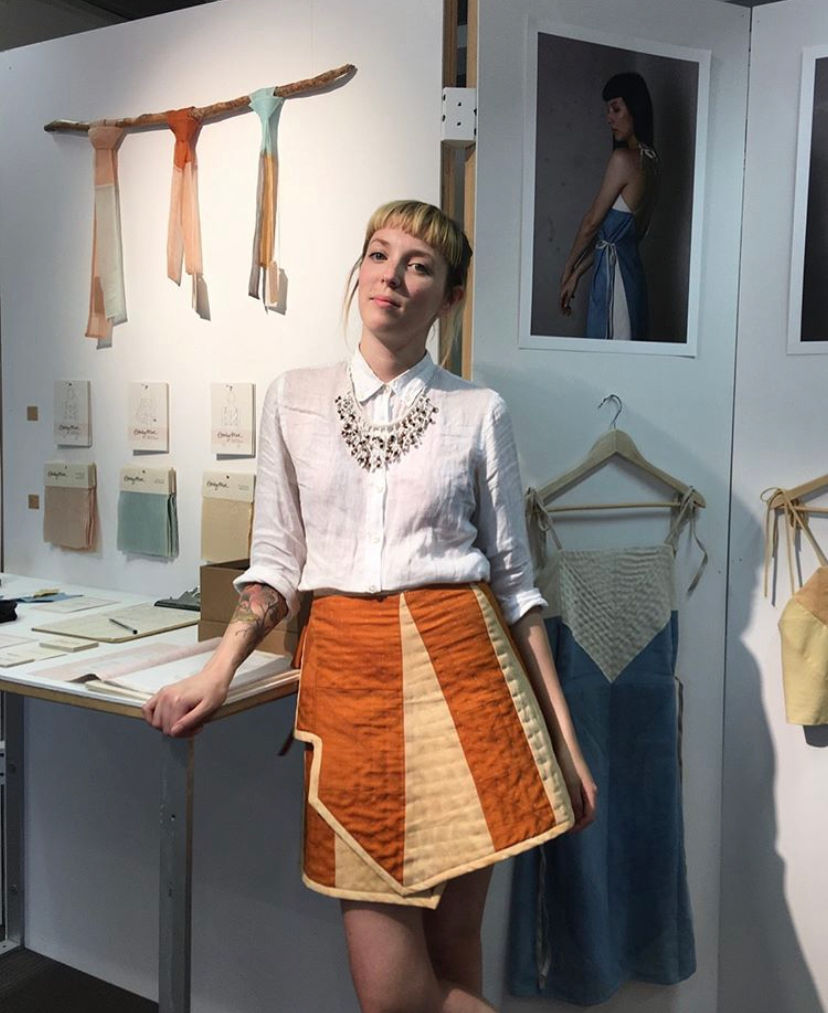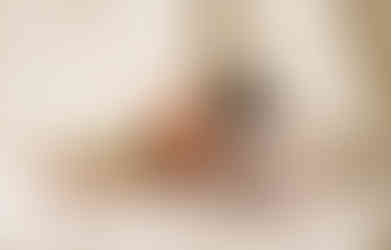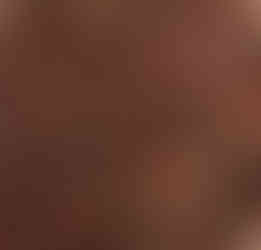Sustainable Fashion Is Back On The Radar: Interview with Emily Mae Martin
- Elina Kobzar

- May 22, 2020
- 3 min read
Updated: Jun 22, 2020

Photo Credit: Emily Mae Martin
Emily Mae Martin is a sustainable designer from Edinburgh. Emily is using traditional crafts such as patchwork, quilting and natural dyes while creating her new garments and accessories.
The designer graduated from Edinburgh College of Art (ECA) and shortly after got a part-time job in clothing retail. "I wanted to stay in Edinburgh after my undergrad but there weren’t many creative job opportunities here".
As well as retail experience, Emily creatively worked with people with and without learning disabilities and created illustrative work. She did this for 2 years while spending time on funding applications to start her MFA in Textiles at ECA.
From a young age, Emily had an interest in clothing more than fashion. The designer loved everything from "everyday clothing to performance costume communicated about a person, an idea, a feeling, or a moment in time."
During Emily’s textile studies she has enjoyed fashion projects but shortly realised that she doesn’t want to be part of that industry. "It seemed competitive, harsh and frivolous to me at the time- and later I have learned it’s so much worse than that, ethically and environmentally."
Emily was always aware of sustainable fashion but it felt more under the radar at the time. "Between courses I discovered so many innovative designers creating sustainable fashion that really re-ignited my love for it. It gave me new hope that I could create clothing and feel positive about it."
Emily decided to create her own sustainable brand which allowed to produce garments and accessories that oppose fast fashion expectations. Although Emily’s business is at an early stage, the designer been developing products and figuring out how to increase revenue for the last two years.
"I still find it odd to refer to myself as ‘having a business’. Starting a business is easy- it’s maintaining it that’s difficult", says Emily.
Emily's work is inspired by various textile craft processes such as modern quilts with minimalistic designs. For her quilted garments, Emily uses wadding made from recycled plastic bottles. Recently she also added soy fiber wadding that is produced closer to the UK.
All of Emily’s garment patterns are triangle variations, as a result, designer ends up with two waste piles - small strips or much smaller edges, trims and threads. "I’ve started to use the former to create other items including quilted pouches and quilted children’s jackets. The latter I plan to use for making cushion fillers."


Fabric is also an important part of every design. It is about comfort, flexibility and fit. Emily uses materials such as hemp, tencel and linen which are sourced unbleached and as close to home as possible. Every fabric is then dyed naturally without using chemical dyes that are made from petrochemicals.
However, natural dyes also have their sustainable downfall as "it requires a lot of water and dyestuff to produce a strong and even colour." This is why Emily creates a small batch until the colour is exhausted in order to minimize the waist.
"It is definitely a slow process, and much slower than traditional dye methods but this is part of the joy to me. The more I’m practiced at it the less time-consuming it feels, plus in the moments of waiting for plants to cook or fabric to soak, gives me time to do other jobs. The time never feels wasted."
Photo Credit: Emily Mae Martin
Emily looks at the challenges from a positive side. She describes them as her favourite part at work. "I’m always trying to be as sustainable as possible as well as creating interesting, wearable garments – so it’s a lot of boxes to tick. I also have to make sure t’s something I feel confident making as I’ve not been traditionally taught how to make clothes."
The designer doesn’t follow any trends or seasons. Instead, she creates investment garments which celebrate process and craft. The most important thing for Emily is to create a longevity garment which will thoughtfully pass through generations and potentially can be brought back to the designer for mending. This step is Emily’s future development idea.
Following the COVID-19 news, Emily believes that a lot of unethical behavior from bigger fashion producers has come to light quite prominently. "I hope more people have become aware of who are better brands to buy from."
The designer also thinks that the biggest change could be seen in shopping habits as with the huge halt on getting everything easily and quickly there could be a surge in more thoughtful shopping habits.
"Fingers crossed the industry can create something positive out of such a difficult and devastating time for many. It is an interesting time to re-think our lives and how we move forward."











Comments